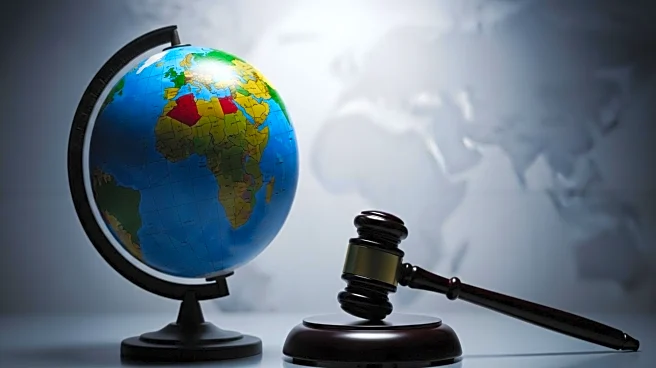What's Happening?
European officials have informed Iran that it has not yet taken the necessary actions to prevent the reimposition of United Nations sanctions related to its nuclear program. The warning comes after discussions between Iran and representatives from France, Germany, the United Kingdom, and the European Union. EU diplomat Kaja Kallas emphasized the urgency for Iran to demonstrate full cooperation with the International Atomic Energy Agency and allow inspections of all nuclear sites. Despite a previous agreement mediated by Egypt, Iran has not provided a report on its nuclear material, raising concerns among European nations. Iranian Foreign Minister Abbas Araghchi has dismissed the sanctions as unjustified, urging other parties to maintain diplomatic efforts.
Why It's Important?
The potential reimposition of U.N. sanctions on Iran could have significant geopolitical and economic repercussions. Sanctions would freeze Iranian assets abroad, halt arms deals, and penalize the development of Iran's ballistic missile program, further straining the country's economy. The 'snapback' mechanism, designed to be veto-proof, underscores the seriousness of the situation. Heightened tensions between Iran and Western nations could destabilize the region, especially amid ongoing conflicts such as the Israel-Hamas war. The diplomatic standoff highlights the challenges in addressing nuclear proliferation and maintaining regional stability.
What's Next?
The U.N. Security Council faces a critical decision at the end of September regarding the reimplementation of sanctions on Iran. Diplomatic efforts will continue as stakeholders seek to avert an avoidable crisis. Iran's compliance with international nuclear agreements remains a focal point, with potential implications for regional security and international relations. The outcome of these negotiations will influence future diplomatic strategies and the balance of power in the Middle East.








